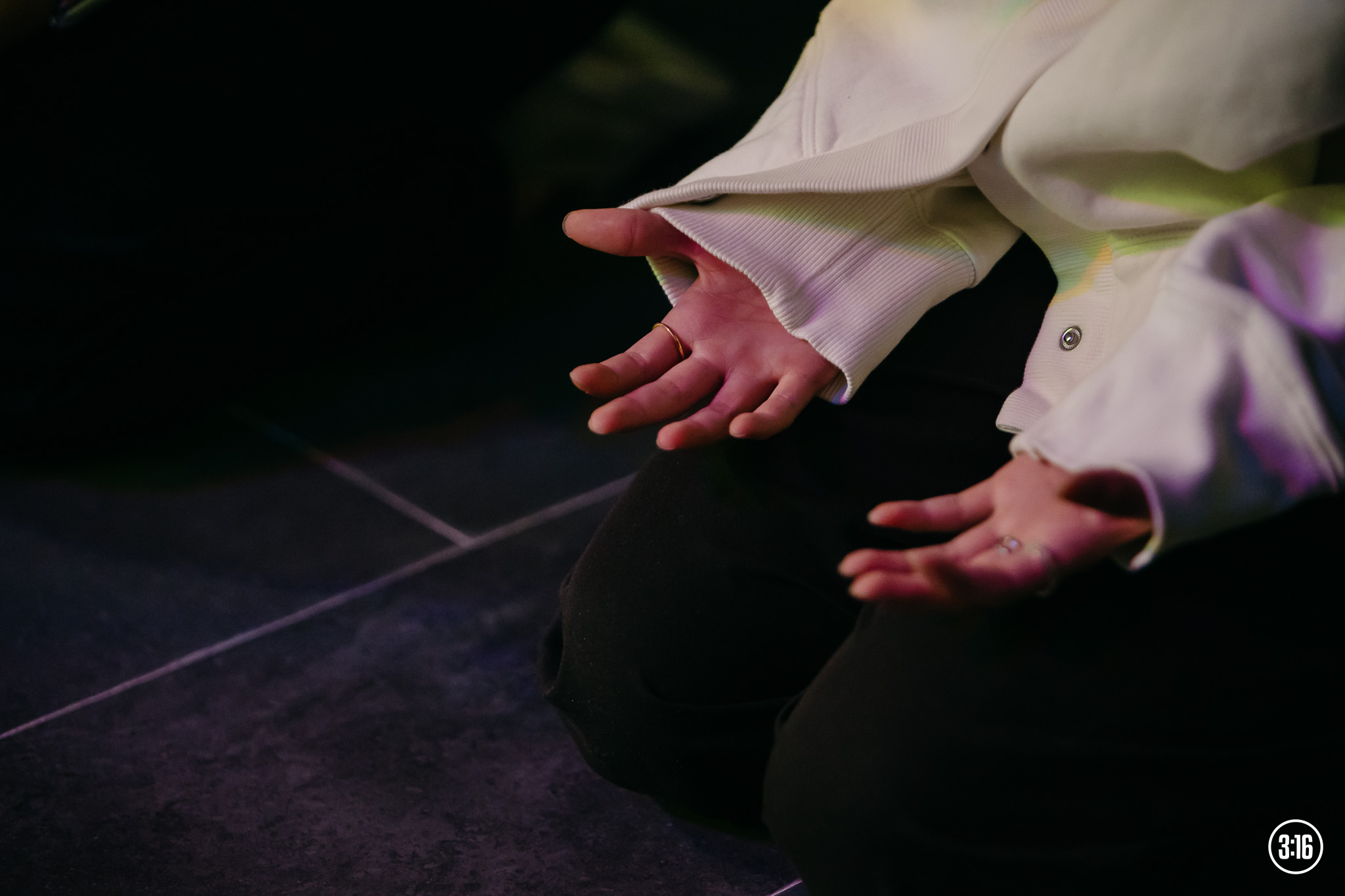The church service is underway. Congregation’s waiting. The pastor calls out a bunch of names including yours. You stand up and step forward. Questions are asked. Water is poured out… Or maybe you step into a pool.
What’s on your mind?
In the years I’ve been handling my church’s ‘baptism class’, people usually have 4 different responses to the often misunderstood sacrament.
Some think they’re not good enough – they affirm the church’s theology and practices. Some even serve. But baptism would make them feel like a first-rate hypocrite.
Some wonder if their baptism really meant anything. They want round two.
Some think it unnecessary – after all, wasn’t our baptism supposed to be a spiritual one, by the Holy Spirit?
Some just don’t want people touching their babies, or think of it as a archaic, uninspired way to pass time in a church service.
The perceptions, mostly negative, are endless: A reason to hype, a lame excuse to legitimise church fellowship.
It seems the problem many young people have is baptism’s cultural disconnect from all they’re used to. To rediscover that meaning and joy of baptism, let’s trace the steps of one of our most beloved forefathers, Martin Luther.
Even Luther struggled with the meaning of baptism.
In the early church, baptism was seen as the rite of initiation into the Church (the ceremony to join the family of God), where a new believer could be forgiven of all his/her sins and have a new life.
Pre-Reformation, it was taught that baptism worked by cancelling the “original guilt” of sin by literally infusing God’s grace into your soul. Basically, once you were baptised, all your previous sins (up till that point of baptism) would be removed and thus you would be delivered from eternal judgment.
However, any further sins from the point of baptism would be absolved via other means – such as paying penance or asking for confession from a priest, or the afterlife concept of purgatory.
Martin Luther wasn’t very happy with this view – he didn’t think it aligned with Scripture. In 1519, he wrote a little treatise (article) explaining his resolution and describing baptism as a “sign”.
SIGN LANGUAGE
Signs are symbolic rituals conveying deeper truths.
Take a wedding ring for instance. It has some materialistic value, but it’s true worth is in the marriage it signifies. Now the ring itself is not the marriage (so if I lose the ring I don’t lose my marriage). Yet I wouldn’t simply discard or cash-in my wedding ring.
My wife wouldn’t be too happy, but that’s not the point.
So it works the same with baptism – it is a sign. It’s not ‘magic water’ as some assume, but it’s important because of what it signifies.
In the Scriptures, baptism is connected to:
- Repentance & forgiveness of sins (Mark 1:4)
- Deliverance from judgement & destruction (1 Peter 3:20-21)
- Putting on Christ and putting off the ‘old man’ (Galatians 3:27)
- Dying & being buried with Christ (Romans 6:3)
- Becoming part of the Church (Ephesians 4:4-6)
- Washing away of sins and regeneration (becoming new) (Titus 3:5)
Luther, in his treatise, saw baptism not as water that mysteriously transforms you, but an ‘external sign’ to mark out the people of Christ.
The sign: To be thrust into the water (in the name of the Father, Son and Spirit) and to be drawn out again.
The significance: The old sinner (with his habits and lifestyle) is drowned and a new man arises – not merely a temporary cleansing, but a sign of spiritual resurrection!
It’s our heart’s natural, immediate response to the glorious gospel!
Now that’s worth getting excited about. But let’s go deeper. Why should you care? Why the fuss? Why is it an occasion for song and dance? Why do we gather, celebrate and commemorate it?
Here’s where we bring theology into the personal sphere of your life.
BAPTISM “INTO”
Interestingly, in the New Testament, the preposition after the word “baptism” is almost always ‘into’.
Romans 6:3 Do you not know that all of us who have been baptised into Christ Jesus were baptised into his death?
1 Corinthians 10:2 and all were baptised into Moses in the cloud and in the sea,
1 Corinthians 12:13a For in one Spirit we were all baptised into one body…
Galatians 3:27 For as many of you as were baptised into Christ have put on Christ.
Even the Great Commission should follow suit (“into” is often found in the footnotes):
Matthew 28:19 Go therefore and make disciples of all nations, baptising them into the name of the Father and of the Son and of the Holy Spirit,
It’s the sign of old being traded for new: Direction, purpose, identity. When we are baptised we leave one way of life for another.
Rejoice because the new is way better!
A SYMBOL OF ADOPTION
You’re no longer part of an old family (the family of sinful men and women that came through Adam). No, you are dead to that old family and ‘alive’ in God’s family – because of what Christ has done on the cross. You’re ‘born again’ into this new family.
Baptism doesn’t cancel all your previous sins (including original sin), but joins you to a holy (sinless) God who loves us with a perfect love that He’d send His begotten Son to take our sins upon Himself.
That means while you are still a wretched sinner, Jesus renders you simultaneously righteous. “Pure and without sin, (yet) wholly guiltless”!
The best thing about the adoption imagery is that it acknowledges the adopted child still retains the old family’s characteristics – yet he/she is legitimately and completely part of the new family, because the adoption paper has been signed.
We are one with God, no matter what.
And with this comes a wonderful promise that God will from this point onwards (baptism) agree to help you deal with the weight of your sin till the day you meet Him face to face.
Luther summarises: “Through my baptism God… has bound Himself in a covenant with me, not to count my sin against me, but to slay it and blot it out”.
Thus baptism invites God to become bound (according to His promise) to help you deal with your sin for the rest of your life, no matter what it takes. And He gladly leads you on.
It’s not just one-off, but the start of the grandest adventure of your life.
Now that, my friend, is worth rejoicing about!
This article is an edited excerpt from Dev Menon’s book, Stirring Stale Waters: How Martin Luther Helps Us Find Joy in Our Baptism. To purchase it, please drop him an email here ([email protected]).










